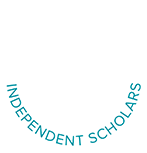Real name:
Website:
Biography:
I'm a Belgian national living in Spain. I have two Master of Science degrees in Botany and Education and pursued doctoral studies in Microbiology (bioluminescent bacteria) at three Belgian universities. I am a retired chemistry and biology teacher/professor. I began my career as an Associate Expert of the Food and Agriculture Organization of the United Nations (FAO). I taught in Belgium and Africa at high school and college levels. I also founded two cosmetics safety consultancies. All these activities have led me to work and give lectures in some twenty countries. I am also the author of eight scientific publications.
Current research areas:
I am developing laboratory experiments in chemistry and biology with the simplest and least expensive means.
Recent scholarly activity:
After nearly 30 years of teaching experience—four of which were in Africa (Comoros) and 21 in adult education institutions at the secondary and higher levels (referred to as Enseignement de promotion sociale in Belgium)—I came to realize that the traditional methodology for teaching experimental sciences is not very effective.
Indeed, the standard model is based on a duality between theory and practice. It assumes that, intellectually, theory must necessarily precede practice; otherwise, the learner risks performing a given manipulation mechanically without understanding what they are doing. This approach works relatively well in a "privileged" system where educational resources are sufficient and students are diligent and motivated. But what about institutions that lack these resources or students who are disengaged?
On the other hand, by applying a parallel didactic approach that involves rediscovering a natural law through observation and hands-on experimentation, I found that it was more effective in learning outcomes. Furthermore, the objective of this approach is not to oversimplify but rather to consider the learner, no matter how disadvantaged, as a potential "scientist." Intellectual growth through exploration and discovery is undeniably more motivating, more rewarding, and more enjoyable than the rigid application of an abstract theory.
Without delving into complex and often controversial sociological and geopolitical considerations, it is clear that one of the main factors limiting the development of practical aspects of science education is financial in nature. When it comes to natural sciences, the theoretical component requires far fewer material resources than the practical component—i.e., access to and use of laboratories. Hands-on practice generates costs that educational institutions must bear. Unfortunately, depending on the school's social context or geographic location, there are significant inequalities in the ability to implement practical work programs (lab sessions) properly. This reality exists, to varying degrees, whether in underprivileged schools in so-called "developed" countries or the vast majority of schools in third-world nations.
Can something be done to elevate, even slightly, the technological level of laboratory work in underprivileged schools, or even to establish laboratories with limited resources, thereby improving science education? One possible solution is presented in this project, named RECYCLABS. This is an open project, truly "open source," in that user feedback is essential to diversifying the project's resources. This borderless interactivity will also help break the rigidity of scientific knowledge transmission, which is often seen as elitist and intimidating.
I hope that this work will contribute, in some small way, to the scientific education of those who lack resources by encouraging them to make use, as much as possible, of whatever is available to them.
